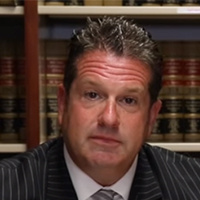Nassau County, NY Bankruptcy & Debt Lawyers
Sponsored Law Firm
-
 x
x

Click For More Info:
-
The Michelson Law Office
203 North Lasalle Street Suite 2100 Chicago, IL 60601» view mapBankruptcy, Chapter 7, Chapter 13 Chicago Bankruptcy Lawyer
When your finances are at stake, choose the best. Don't sink deeper in debt. Contact The Michelson Law Office
800-824-6431
Richard S. Feinsilver
✓ VERIFIEDOver the past 25 years, lawyer Richard Feinsilver has represented in excess of 6,000 clients in the prosecution of consumer and business bankruptcy pr... (more)
Jeffrey Edward Litman
✓ VERIFIEDEugene Litman, Esq. established Litman & Litman, P.C. in 1958. Eugene raised his four sons with aspirations that they would join him in the legal prof... (more)
Elliot Scott Schlissel
✓ VERIFIEDThe Law Offices of Schlissel DeCorpo is composed of attorneys and paralegals who are caring, dedicated professionals contributing experience and exper... (more)
Scott R. Schneider
✓ VERIFIEDMy name is Scott R. Schneider, and I'm committed to bringing more than two decades of bankruptcy law experience to help you unburden yourself if you a... (more)

 Abraham Michelson Chicago, IL
Abraham Michelson Chicago, IL AboutAbraham Michelson
AboutAbraham Michelson Practice AreasServices
Practice AreasServices




